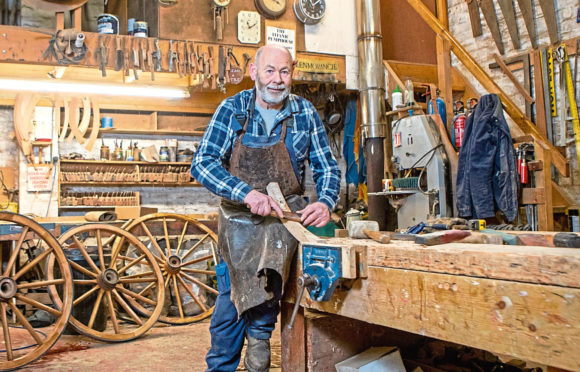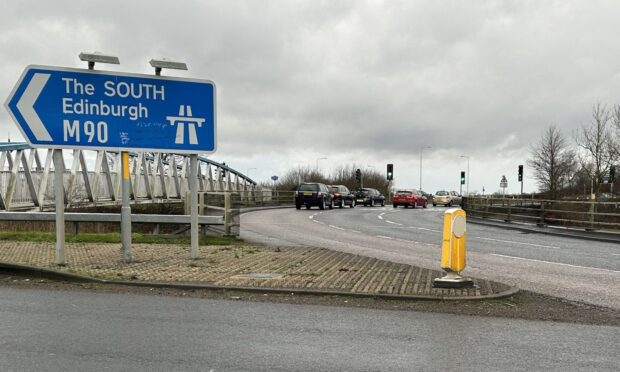These are the specially-made wooden creations of Scotland’s last working wheelwright.
Ian Grant made his first wheel in 1976 and has been running his wheelwright business since he retired from his job as a long-distance lorry driver more than 20 years ago.
While mass demand for wheelwrights has diminished, the 67-year-old says he still serves a steady number of customers who own wooden carts and carriages.
Although there is no successor in sight to take over his business once he downs his tools, Ian said he isn’t concerned about the future.
The father of two said: “I’ve been a wheelwright for more than 20 years and I’ve no doubt someone will take on the wheelwright job.
“Being the last one in Scotland, I have always taken pride in my work but I think my family’s more proud than I am.
“There’s nothing worse than being big-headed about your work.
“Making something that will last on the planet for more than 100 years, it’s leaving that mark on the planet that amazes me.”
Ian, from Cupar, uses various hardwoods for his work, including elm, mahogany and oak, and can produce a set of four custom-ordered wheels in just over a week.
He said: “The people who want wheels made are people that have old farm carts. It’s very expensive to create wheels for a farm cart or harvest cart, which cost around £800 per wheel – a lot of that’s in labour.
“The spokes are always oak, the felloes are made of ash, and mahogany is used on the panelling.
“Elm is a very short, close grain that’s ideal for knocking holes in and staying intact, particularly for the spoke holes.
“I can make two wheels in four-and-a-half days. A two-wheel cart usually takes around five weeks, while a four-wheel carriage would take six to seven weeks.”
The wheelwright trade took off in the 18th Century with thousands of wheelwrights throughout the UK building and repairing wooden wheels.
But with the advent of the First World War and Second World War, automation and the mass production of metal wheels and pneumatic tyres, the demand for wheelwrights declined.
Ian said: “During the 1950s there were 300 wheelwright businesses but between the 1960s and now it’s dwindled massively.
“Now there’s only around 17 wheelwrights in England and one in Scotland. There’s wheelwrights in London, Devon, Kent and the nearest one to me is Leeds.”
Ian started an apprenticeship in joinery as a teenager in 1966 and worked at an undertakers, before later working in the haulage industry.
Although not originally trained in the craft, Ian received some help from a wheelwright, which stoked his interest in the field. He said: “It was never planned, the opportunity just arose and I didn’t think much of it.
“I got guidance from another wheelwright but you don’t just wake up and overnight you are one – it’s a lot of work. I’ve had inquiries from places like France, Germany, Switzerland and Scandinavia, as well as Strathclyde Fire and Rescue, Grampian Transport Museum, and I worked on a couple of cannons from Blair Castle in Pitlochry.”










